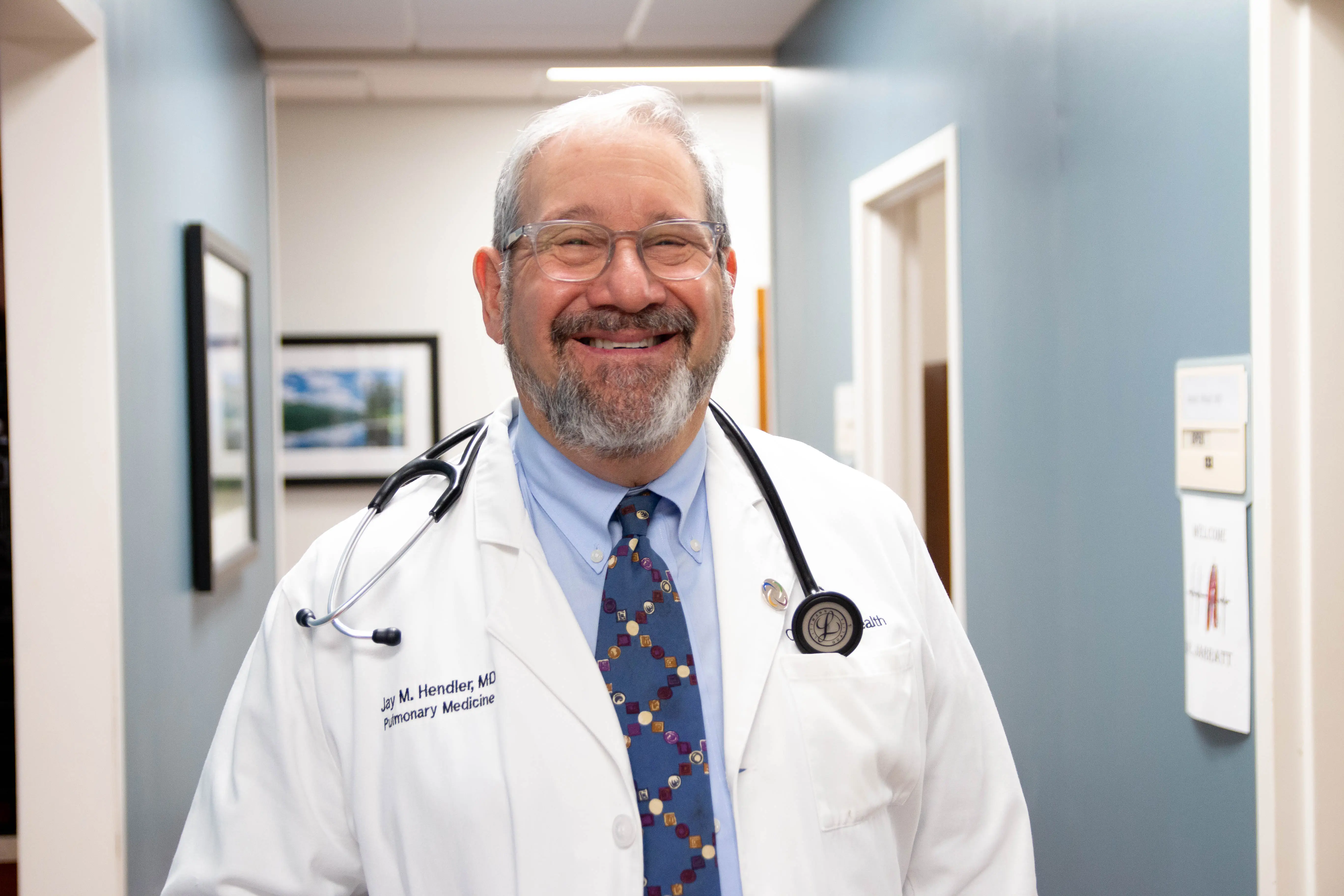
Understanding Lung Cancer with Dr. Jay Hendler: A Physician’s Perspective

Dr. Jay Hendler is a board-certified pulmonologist with CaroMont Pulmonary Medicine. He specializes in treating patients facing lung cancer and is passionate about raising awareness around prevention and early detection.
"Lung cancer isn't an easy topic to discuss, but understanding this disease could save your life or the life of someone you love. This Lung Cancer Awareness Month, let's explore what everyone should know about prevention, screening and early detection."
Understanding the Impact of this Disease
Lung cancer remains the deadliest cancer in America. It accounts for about 21% of all cancer deaths—more than colon, breast and prostate cancers combined. Each year, approximately 220,000 new cases are diagnosed, and nearly 130,000 people lose their lives to this disease.
The statistics are sobering, but there's hope. We've made significant progress in fighting lung cancer, and with increased awareness about prevention and screening, we can make even greater strides.
What Is Lung Cancer?
Lung cancer occurs when abnormal cells in the lungs cluster together to form a tumor. Unlike healthy cells, these cancer cells grow without order or control, destroying healthy lung tissue. When cancer cells grow too rapidly, they prevent your body's organs from functioning properly.
The key to survival lies in catching the disease early. Stage 1 lung cancers can have a 75-90% survival rate, but once the disease reaches stage 4, survival drops to less than 5%. Unfortunately, because early-stage lung cancer rarely causes noticeable symptoms, it's often diagnosed only after it has spread.
Prevention: Your First Line of Defense
The single most important thing you can do to prevent lung cancer is not smoking. Smoking accounts for 80% of lung cancer deaths in men and 90% in women.
The numbers are stark: people who smoke cigarettes are 15 to 30 times more likely to develop or die from lung cancer than non-smokers. Even smoking just a few cigarettes a day increases your risk significantly.
Ready to Quit?
If you currently smoke, quitting is the most powerful step you can take for your health. While quitting isn't easy, and many people need several attempts before they succeed, the benefits are substantial. Ten years after quitting, your risk of developing lung cancer drops to less than half of what it was.
Help is available:
-
1-800-QUIT-NOW provides free phone support
-
www.becomeanex.org and www.cdc.gov/quit
It is important to talk to your doctor about creating an individualized plan that works for you.
Early Detection Through Screening
After prevention, early detection is our most powerful weapon against lung cancer. This is where lung cancer screening is critical.
What Is Lung Cancer Screening?
Lung cancer screening uses a low-dose CT scan to look for cancer in high-risk patients before symptoms appear. When cancer is detected early and before it spreads, treatment is far more effective. National trials have shown that screening can reduce the risk of dying from lung cancer by 20%.
Are You Eligible?
You may be a candidate for lung cancer screening if you:
-
Are between ages 50 and 77
-
Have at least a 20 pack per year smoking history (this means smoking one pack per day for 20 years, or two packs per day for 15 years, etc.)
-
Currently smoke or quit within the past 15 years
If you meet some or all of these criteria, schedule a conversation with your primary care provider. Together, you'll engage in shared decision-making, weighing your unique medical history, risk factors and health goals to decide if lung cancer screening is the best choice for you.
Important to Remember
While screening is a powerful tool, it doesn't prevent lung cancer—it helps us find it early when treatment is most effective. The absolute best way to reduce your lung cancer risk remains never starting smoking or quitting if you currently smoke.
Take Action This Month
CaroMont Health offers a Lung Nodule & Lung Cancer Screening Program with a dedicated team of doctors and healthcare professionals to guide patients through the screening process.
This Lung Cancer Awareness Month, take a moment to assess your risk, consider your smoking status, and have an honest conversation with your healthcare provider. Early action can make all the difference. If you think you might be eligible for screening, talk with your primary care provider. Together, we can work toward making lung cancer a more treatable, manageable condition.
